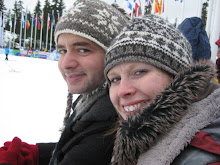I had top bunk on the train the next day for the 30 hour ride, which is less than ideal, as there isn’t nearly enough room to sit up in bed. There are seats by the windows in the aisles, but the Chinese thing to do is to hang out on the spacious bottom bunk whether or not it’s yours or you know the person. When I eventually descended to have my instant noodles, the three passengers hanging out on the two bottom bunks drew me into conversation right away, especially an older retired man who was with his wife. These conversations can be remarkably similar, so you get well-practiced at it and appear to have effortless Chinese skills, at least for the first 10 minutes. In order of likelihood, you will hear the following questions in the first 5 minutes of meeting a random Chinese person:
1. Which country are you from?
2. How long have you been in China?
3. Are you used to living here?
4. How old are you?
5. Where do you study/are you a student?
6. Are you married/do you have a girlfriend?
7. How much money do you make?
8. (in my case) Zhangye? Where’s that? Hm. Oh yes, Zhangye. Why would you want to go there? You should go to a big city, they have lots of foreigners.
I’ve heard of a foreign teacher who made a t-shirt with the answers to the common questions, just to make things easier. After a while, the old man remarked “our countries have a lot of communication now. Not like before—you don’t remember, you’re too young, but we were enemies,” adding emphasis by pounding his two fists together. “Mao Zedong—do you know him?—he used to say America was our enemy.” He said current president Hu Jintao is a good leader (enormous surprise there), and when he brought up Iraq I was very emphatic about how much I disagreed with the war and disliked Bush, that in fact quite a few Americans dislike him. He turned to the young man sitting next to me and said “Americans can say whatever they want.” Eventually those two had their own conversation about Chairman Mao, which unfortunately was too difficult for me to understand. During this time the old man split a small bottle of potent baijiu with me, quite pleased that I could drink the stuff without making a face. His wife also insisted I take handfuls and handfuls of peanuts. Out of politeness you should refuse these offerings at first, and in fact I don’t really like peanuts, but a Chinese person will give it to you anyway.
“Chatting” would definitely be one of the top pasttimes in China, and on the train passengers are quick to make new friends. To my surprise the young man asked if I had any Chinese books he could borrow, and as it happened I had just bought a Chinese/English edition of a book called Six Chapters of a Floating Life. He returned it the next day, and judging from its appearance it had accompanied him into battle at some point during the night. I remember watching in horror as my first Chinese tutor back in New York asked to see my book on characters, and immediately wrote in it and twisted back the pages as harshly as possible.
Sometimes when I study Chinese I do it in public, increasing the chances that curious onlookers will try to talk to me instead of staring and moving on. On the second day of the train ride, I was looking over a book on Chinese radicals I bought in Beijing when the young girl next to me, who had been sneaking glances for a long time, finally started up a conversation. Zhangye was actually her hometown, but she was going farther to Dunhuang where she worked at a travel agency. English had been her major but she hadn’t used it in three years, so she would pepper her Chinese with very occasional English words, i.e. “wo qu le Beijing zhao gongzuo le, gen wode younger brother.” At one point we were talking about the stereotypes people have of our cultures, and I was explaining that American movies exaggerate, and we don’t really all have massive incomes or shoot at each other on a daily basis. She responded “yes, from watching your movies I feel that America is very dangerous. And that black people are very frightening!” China is not the most racially tactful place I’ve seen, and they are fond of referring themselves as having “yellow” skin. After a couple of hours I didn’t have much left to say, so she retired to her bunk, and the last I heard from her was when she offered me a drink, excitedly pronouncing one of the English words she remembered: “Pepsi Cola!” And somewhere a Pepsi executive got his wings.

No comments:
Post a Comment